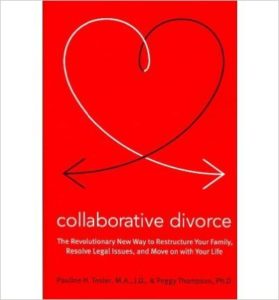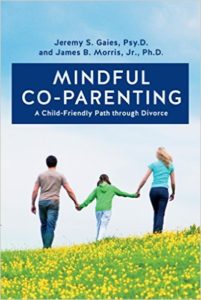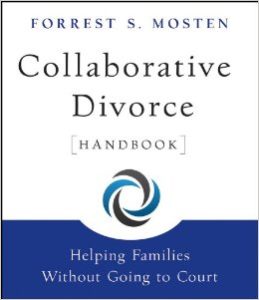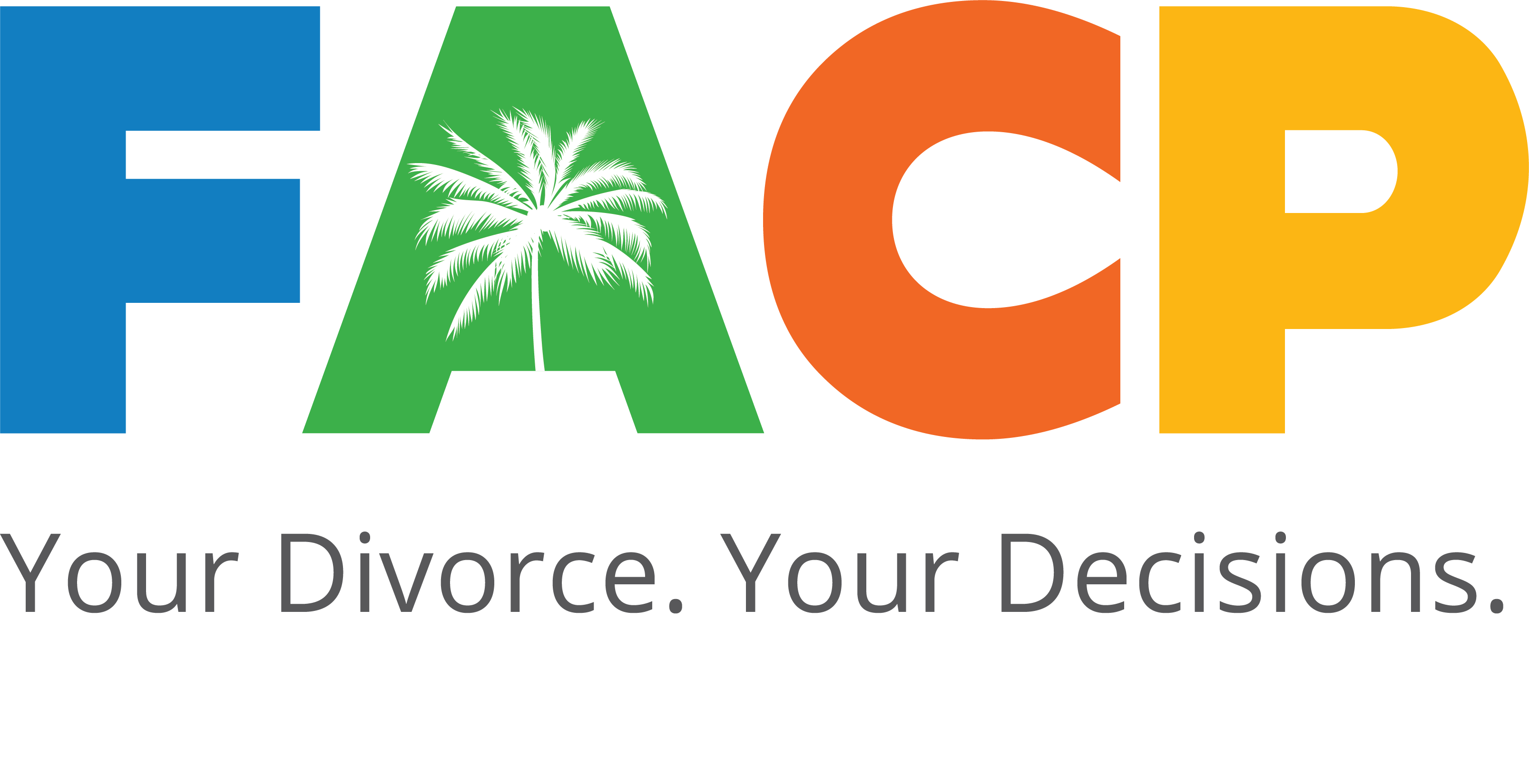Divorce is a tough, though there are some processes that make it less difficult than others. Collaborative divorce is one of those processes, as it is a private, respectful, and non-adversarial.
The basic gist of collaborative divorce is that you and your spouse each have your own individual attorneys, and everyone agrees that the attorneys can only be used to reach an out-of-court agreement. The collaborative attorneys are contractually prohibited from appearing in any contested proceedings. Oftentimes, a neutral facilitator (generally with a mental health licensure) and a neutral financial professional are utilized to handle the emotional and financial fallout of divorce.
Those are the basics. But, if you are like me, you want to learn all about any major endeavor before getting into it. Below are books that go more in depth into collaborative divorce, many of which are geared to spouses considering this private form of dispute resolution.
 Stuart G. Webb & Ronald D. Ousky, The Collaborative Way to Divorce: The Revolutionary Method That Results in Less Stress, Lower Costs, and Happier Kids – Without Going to Court (Plume 2007). Stu Webb is the founder of collaborative law, and he and Ron Ousky gear this book to those considering divorce. It is a reader-friendly treatise on the origins of collaborative law and why and how it tends to be better for most people who face family law issues. If you are considering collaborative divorce, any research should begin here.
Stuart G. Webb & Ronald D. Ousky, The Collaborative Way to Divorce: The Revolutionary Method That Results in Less Stress, Lower Costs, and Happier Kids – Without Going to Court (Plume 2007). Stu Webb is the founder of collaborative law, and he and Ron Ousky gear this book to those considering divorce. It is a reader-friendly treatise on the origins of collaborative law and why and how it tends to be better for most people who face family law issues. If you are considering collaborative divorce, any research should begin here.
[divider height=”30″ style=”default” line=”default” themecolor=”1″]
 Joryn Jenkins, War or Peace: Avoid the Destruction of Divorce Court (Open Palm Press 2014). If you are curious about what it is like to experience a divorce court battle as compared to how it feels to sit in a collaborative meeting, War or Peace does an excellent job bringing the reader into these very different scenarios through narrative stories and Joryn Jenkins’ personal experiences. This book also demonstrates how the concepts of collaborative are applied to real-life divorce situations.
Joryn Jenkins, War or Peace: Avoid the Destruction of Divorce Court (Open Palm Press 2014). If you are curious about what it is like to experience a divorce court battle as compared to how it feels to sit in a collaborative meeting, War or Peace does an excellent job bringing the reader into these very different scenarios through narrative stories and Joryn Jenkins’ personal experiences. This book also demonstrates how the concepts of collaborative are applied to real-life divorce situations.
[divider height=”30″ style=”default” line=”default” themecolor=”1″]
 Pauline H. Tesler & Peggy Thompson, Collaborative Divorce: The Revolutionary New Way to Restructure Your Family, Resolve Legal Issues, and Move on with Your Life (Regan Books 2006). This book by Pauline Tesler & Peggy Thompson is a step-by-step guide to collaborative divorce (though readers should note that Tesler and Thompson are advocates of a model of collaborative divorce where each spouse has their own “coach,” as compared to the neutral facilitator model that we use most often in Florida). This books also delves more into the psychology of divorcing spouses and how one might handle these emotions.
Pauline H. Tesler & Peggy Thompson, Collaborative Divorce: The Revolutionary New Way to Restructure Your Family, Resolve Legal Issues, and Move on with Your Life (Regan Books 2006). This book by Pauline Tesler & Peggy Thompson is a step-by-step guide to collaborative divorce (though readers should note that Tesler and Thompson are advocates of a model of collaborative divorce where each spouse has their own “coach,” as compared to the neutral facilitator model that we use most often in Florida). This books also delves more into the psychology of divorcing spouses and how one might handle these emotions.
[divider height=”30″ style=”default” line=”default” themecolor=”1″]
 Jeremy S. Gaies & James B. Morris, Jr., Mindful Co-Parenting: A Child-Friendly Path through Divorce (Create Space Independent Publishing 2014). Mindful Co-Parenting is geared towards parents who want to learn the best ways to help their children through a divorce. Gaies & Morris discuss why some ways, such as collaborative divorce, are better for kids, but also what to do in those situations where there is a lot of conflict between parents.
Jeremy S. Gaies & James B. Morris, Jr., Mindful Co-Parenting: A Child-Friendly Path through Divorce (Create Space Independent Publishing 2014). Mindful Co-Parenting is geared towards parents who want to learn the best ways to help their children through a divorce. Gaies & Morris discuss why some ways, such as collaborative divorce, are better for kids, but also what to do in those situations where there is a lot of conflict between parents.
[divider height=”30″ style=”default” line=”default” themecolor=”1″]
 Nancy J. Cameron, Collaborative Practice: Deepening the Dialogue (Nancy J. Cameron 2011). For those who are interested in a more scholarly work, Collaborative Practice goes through the history of divorce in the U.S. and Canada, explains how collaborative divorce took root, and posits on what the future of collaborative divorce may be.
Nancy J. Cameron, Collaborative Practice: Deepening the Dialogue (Nancy J. Cameron 2011). For those who are interested in a more scholarly work, Collaborative Practice goes through the history of divorce in the U.S. and Canada, explains how collaborative divorce took root, and posits on what the future of collaborative divorce may be.
[divider height=”30″ style=”default” line=”default” themecolor=”1″]
 Forrest S. Mosten, Collaborative Divorce Handbook: Helping Families Without Going to Court (Jossey-Bass 2009). If you want to know what attorneys and other professionals have on their bookshelves when they have questions about collaborative divorce, look no further than the Collaborative Divorce Handbook. This book provides a glimpse into why many professionals choose to practice collaboratively, and it contains practice tips, forms, and strategies for professionals to make it the most likely that a collaborative case will be successful.
Forrest S. Mosten, Collaborative Divorce Handbook: Helping Families Without Going to Court (Jossey-Bass 2009). If you want to know what attorneys and other professionals have on their bookshelves when they have questions about collaborative divorce, look no further than the Collaborative Divorce Handbook. This book provides a glimpse into why many professionals choose to practice collaboratively, and it contains practice tips, forms, and strategies for professionals to make it the most likely that a collaborative case will be successful.
[divider height=”30″ style=”default” line=”default” themecolor=”1″]
These are but a few of the many fantastic books out there about collaborative divorce. If you are considering going through a collaborative divorce, I encourage you to educate yourself and learn what to do keep your family law matters private, respectful, and future-focused.
—
Adam B. Cordover is managing attorney of Family Diplomacy: A Collaborative Law Firm in Tampa Bay and practices exclusively in out-of-court dispute resolution. Adam is the Immediate Past President of Next Generation Divorce, a 501(c)(3) organization and Florida’s largest collaborative practice group. He is also co-author of an upcoming American Bar Association book on Building A Collaborative Practice.

“Family Effect” of the Collaborative Process
As an attorney, I am naturally inclined to hyper-focus on the content being discussed in Collaborative full team meetings.




